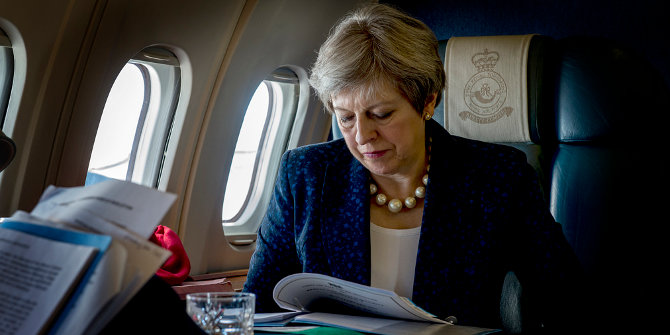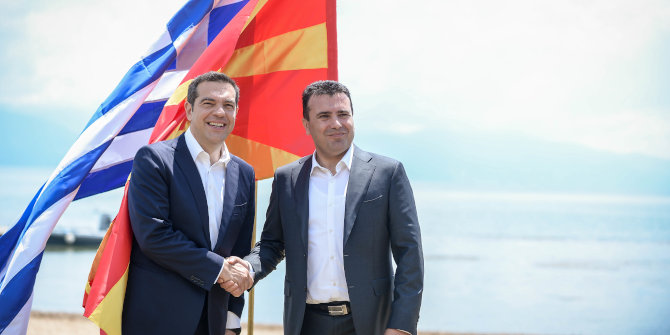The European External Action Service has recently been under fire from many commentators. Stefan Lehne from Carnegie Europe explains what its critics believe needs to change and argues that a solution to the Euro crisis would also strengthen Europe’s foreign policy.
The European Union is currently going through one of the most difficult periods of its existence. While the focus is on the efforts to save the euro, its foreign policy arm, the European External Action Service (EEAS), is struggling as well. Originally conceived in a more optimistic era, the foreign policy reforms of the Treaty of Lisbon are being implemented against this backdrop of crisis and a loss of confidence in the European Union (EU). There is a risk that under these conditions, implementation will fall short of the full potential of the Lisbon reforms. Roughly one year after its establishment, the EEAS still suffers from a number of design flaws. It has an insufficient resource base and there is a lack of genuine buy-in of both the Member States and the European Commission. These flaws can be overcome, however, if corrective action is taken.
For the EEAS to grow into a dynamic leader of European foreign policy, Member States must trust it more and support it more actively. In order to achieve this, the High Representative, Catherine Ashton, should promote the systematic involvement of the Member States’ diplomacies in the work of the EEAS, through increased tasking of foreign ministers with European missions, delegation-embassy teamwork, information sharing, and a supporting role for the EU delegations in the area of consular protection.
Expectations that the Lisbon Treaty would narrow the gap between classical diplomacy and the external competencies of the European Commission in areas such as trade, development, energy, and the environment have not materialized. Both the Commission and the high representative need to take action in order to ensure that the various instruments of external policy can become part of a comprehensive and coherent strategy.
The EEAS has a lot on its plate, and without strong leadership and direction, much of its activity turns into empty words and sterile rituals. The High Representative must take a stronger lead in setting priorities, in giving strategic direction, in streamlining the political dialogue with international partners, and in building a record of concrete policy successes through well-targeted personal engagement.
Today, there are probably fewer officials working on European foreign policy than before the Lisbon Treaty. The EEAS needs more manpower, better integration of its diverse components, and improved recruitment and training practices. The chain of command and the procedures should be reviewed to allow the EEAS to respond more rapidly to developments.
The foreign policy provisions of the Treaty of Lisbon represent the most ambitious reform effort in European foreign policy ever. By taking action in these areas, the EU can begin to overcome some of the flaws in the system and make the vision of Lisbon a reality.
Treaty change is not the only or even the primary driver of the development of European foreign policy. The overall dynamics of European integration also play a crucial role. The current euro crisis is clearly a significant handicap in this regard. A state of permanent crisis management currently absorbs most of European political leaders’ attention, distracting them from foreign policy. The crisis also undermines the EU’s confidence and reduces its soft power on the international stage. Fiscal austerity depletes the resources available for setting up a credible new institution. Many of the shortcomings of the EEAS’s present setup can be explained by this factor.
If the Eurozone ultimately disintegrates, EU foreign policy will simply be part of the collateral damage and face a setback that could last several years. A successful consolidation of the Eurozone on the other hand should over time also provide a new impetus to foreign and security policy. It is too early to tell whether this would take place in the framework of the EU as a whole or possibly in the smaller framework of a new hard core of the EU.
Also key to the development of European foreign policy are the external challenges the EU faces. In this regard there are certainly sufficiently important developments out there to stimulate a serious foreign policy response. The political transformation of the Arab world is a game changer in the EU’s strategic environment comparable to the Balkan conflicts of the 1990s. The EU’s entire southern neighbourhood is likely to see years of dynamic change, which will also touch on the Union’s important interests. All this takes place at a time when Washington is clearly signalling that Europe can no longer rely on the United States to take care of its security interests. Thus, the solution to the Euro crisis could serve as a new impulse to the EEAS.
This article is a shorter version of the longer article from the Carnegie Endowment for International Peace, More Action, Better Service How to Strengthen the European External Action Service by Stefan Lehne.
Please read our comments policy before commenting.
Note: This article gives the views of the author, and not the position of EUROPP – European Politics and Policy, nor of the London School of Economics.
___________________________________
 Stefan Lehne – Carnegie Europe
Stefan Lehne – Carnegie Europe
Stefan Lehne is a visiting scholar at Carnegie Europe in Brussels. His research focuses on the post-Lisbon Treaty development of the European Union’s foreign policy. From 2009-2011, Lehne served as director general for political affairs at the Austrian Ministry for European and International Affairs. Prior to that position, he was the General Secretariat of the Council of the European Union as director for the Balkans, Eastern Europe, and Central Asia.




